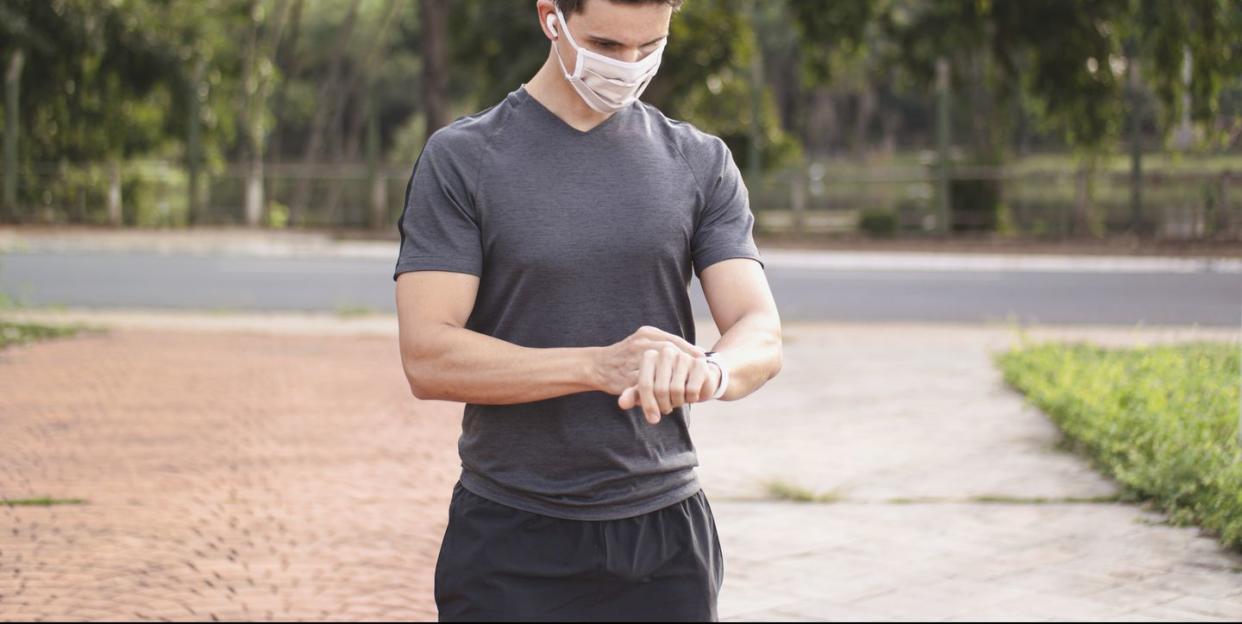This Doctor Ran 22 Miles With a Face Mask to Prove They Don't Affect Oxygen Levels

There's no shortage of excuses that people give for not wearing a face mask while exercising during the Coronavirus pandemic: Face masks are cumbersome, they're uncomfortable, and they make it hard to breathe.
Many people have even subscribed to the myth that masks actually deplete oxygen levels while working out.
But Tom Lawton, an ICU doctor from the United Kingdom, recently disproved that theory by testing it out himself—all while nearly completing a marathon.
“I work in intensive care, I know physiology so I knew that this wasn’t true,” he told CTV News. His goal: to run a 35K (about 21.74 miles) around his hometown of Bradford, U.K., while wearing a face mask and tracking his oxygen levels.
“I thought: How can I demonstrate it? How can I reassure people who would like to do their bit and wear a mask but are scared?” Lawton told CTV News.
ICU doctor runs 35 kilometres wearing face mask to disprove false claims https://t.co/BMfpcUFJFo pic.twitter.com/pn2hCHs7RU
— CTV News (@CTVNews) August 2, 2020
Lawton monitored his oxygen levels during his entire run using a pulse oximeter to track actual data of how the mask impacted his breathing.
He checked his oxygen levels every half hour during his run, and noted that any reading above a reading 95 percent was considered 'normal'. “The [reading was] 98 to 99 all the time, completely normal oxygen levels all the way,” he says. Translation: He had no breathing problems during his entire run.
“It’s certainly unpleasant and I feel for the people who don’t like wearing them, but this is one of the things that’s going to help us,” he said. Looking for a super-breathable face mask? Here are dozens of solid face mask options for running and outdoor workouts.
And if safety happens to be your primary concern, check out this recommendation from a lung doctor about the best mask you can buy to prevent the transmission of COVID-19.
The information in this story is accurate as of the publication date. While we are attempting to keep our content as up-to-date as possible, the situation surrounding the coronavirus pandemic continues to develop rapidly, so it’s possible that some information and recommendations may have changed since publishing. For any concerns and latest advice, visit the World Health Organisation. If you’re in the UK, the National Health Service can also provide useful information and support, while US users can contact the Center for Disease Control and Prevention.
Sign up to the Men's Health newsletter and kickstart your home body plan. Make positive steps to become healthier and mentally strong with all the best fitness, muscle-building and nutrition advice delivered to your inbox.
For effective home workouts, uplifting stories, easy recipes and advice you can trust, subscribe to Men's Health UK today
You Might Also Like

 Yahoo News
Yahoo News 
